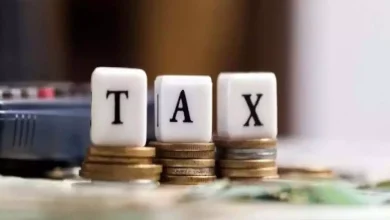Main concern: Promotion of domestic oil production and exploration in the oil and gas sector

Main concern: The Union Budget 2024 is around the corner and anticipation is growing for various tax-related proposals across sectors. The oil and gas sector also has an elaborate wish list seeking policy initiatives and reforms to boost domestic oil production and exploration, encourage green hydrogen projects, measures to increase gas consumption, and fuel adoption options. The main concern of the sector is the inclusion of oil and natural gas under the GST framework. It is pertinent to mention that with the enactment of the 101st Constitutional Amendment Act, 2016, petroleum products were deliberately included within the ambit of the GST law (unlike alcoholic beverages for human consumption), however, the tax was deferred. Therefore, such products can only be taxed on the recommendation of the GST Council, but the announcement in the Budget of the government’s intention to achieve this goal soon will certainly be a step forward in this direction.
A GST-based tax system for the oil and gas sector is imperative to mitigate the adverse economic consequences to producers on account of excessive taxes and production costs due to rising global crude oil prices. Additionally, the introduction of a uniform GST rate in place of differential VAT rates levied by different states on these products will help eliminate the disparity in fuel prices across the country. Needless to add, the smooth flow of input tax credit will generate significant cost savings and unlock efficiencies across the supply chain, thereby promoting greater investment opportunities in the sector. The inclusion of natural gas in GST will be in line with the Government’s strategic objective of achieving net zero emissions by 2070 and increasing the share of gas in the overall energy mix. The Government’s order for implementation of mandatory phased blending of Compressed Biogas (CBG) with CNG and PNG is a significant step towards transition to a gas-based economy and green energy. To drive growth, the industry expects tax incentives to encourage setting up of more CBG plants, directions for pipeline connectivity to enable increased support for research and development in the biogas sector to enable greater production and consumption of CBG.
The biggest challenge in the path of achieving the goal of a uniform tax landscape for the oil and gas sector is to deal with the complex political landscape. Given that the VAT/sales tax levied by the States on petrol, diesel and natural gas is a major source of revenue, reaching a consensus between the Centre and the States would be a major achievement. In a PIL filed before the Hon’ble Kerala High Court, the Court had directed the Central Government and the GST Council to give reasons for not bringing such products under the ambit of GST. However, in the 45th GST Council meeting, many States strongly opposed the proposal, resulting in another deadlock. States may demand a compensation mechanism due to concerns over loss of revenue and the Centre is unlikely to go down that path. Moreover, given the current share of revenues of the Centre and states from excise duty and VAT respectively, GST rate determination will be another challenge. Any anomaly in the GST rate structure could lead to price volatility, which in turn could fuel political resistance and protests, defeating the very purpose of any such reform. While the industry is hopeful and ready for the inclusion of oil and gas in GST, it remains to be seen whether the budget can deliver the much-awaited breakthrough on this front, or it will be another hit and miss.





